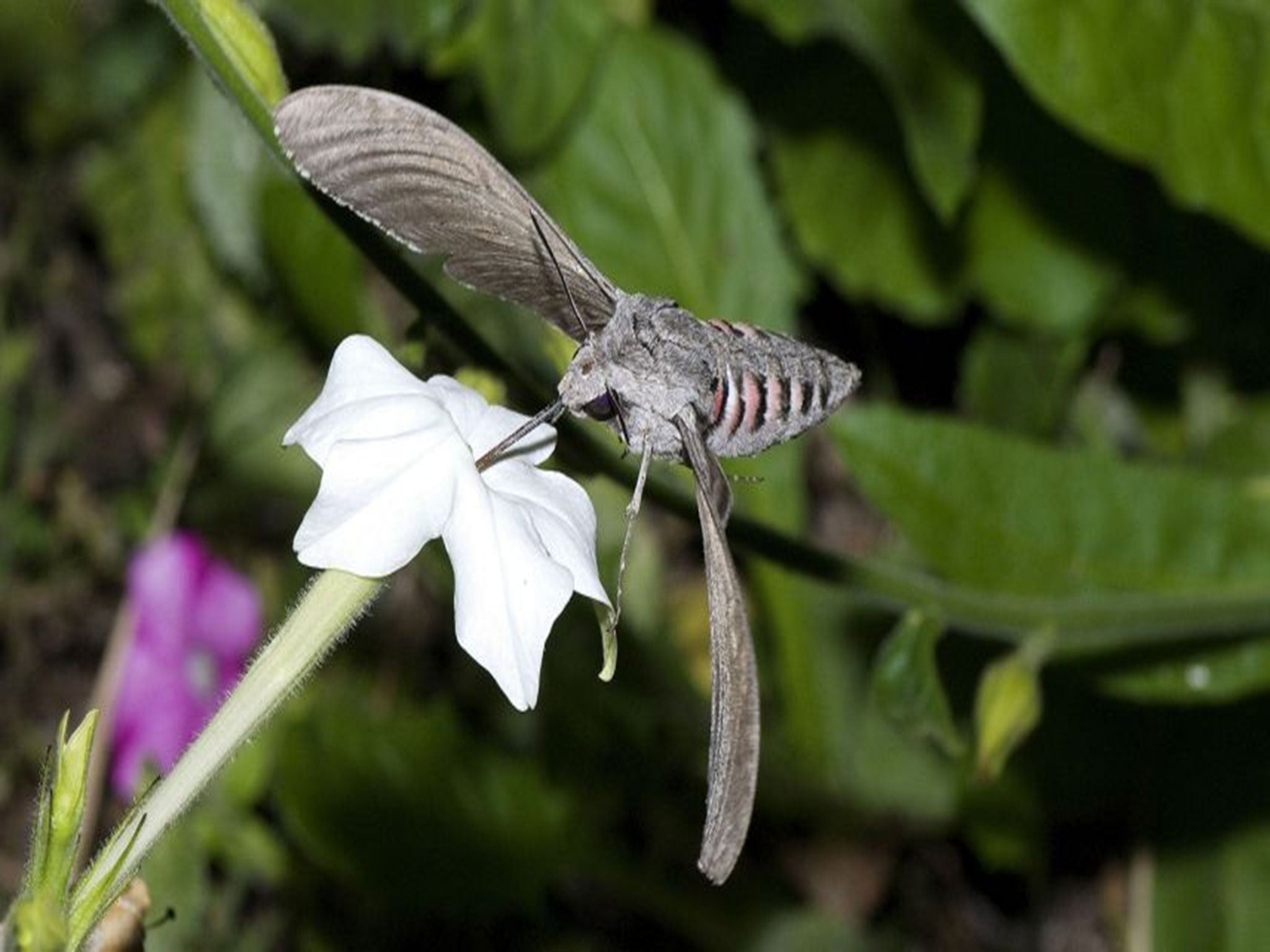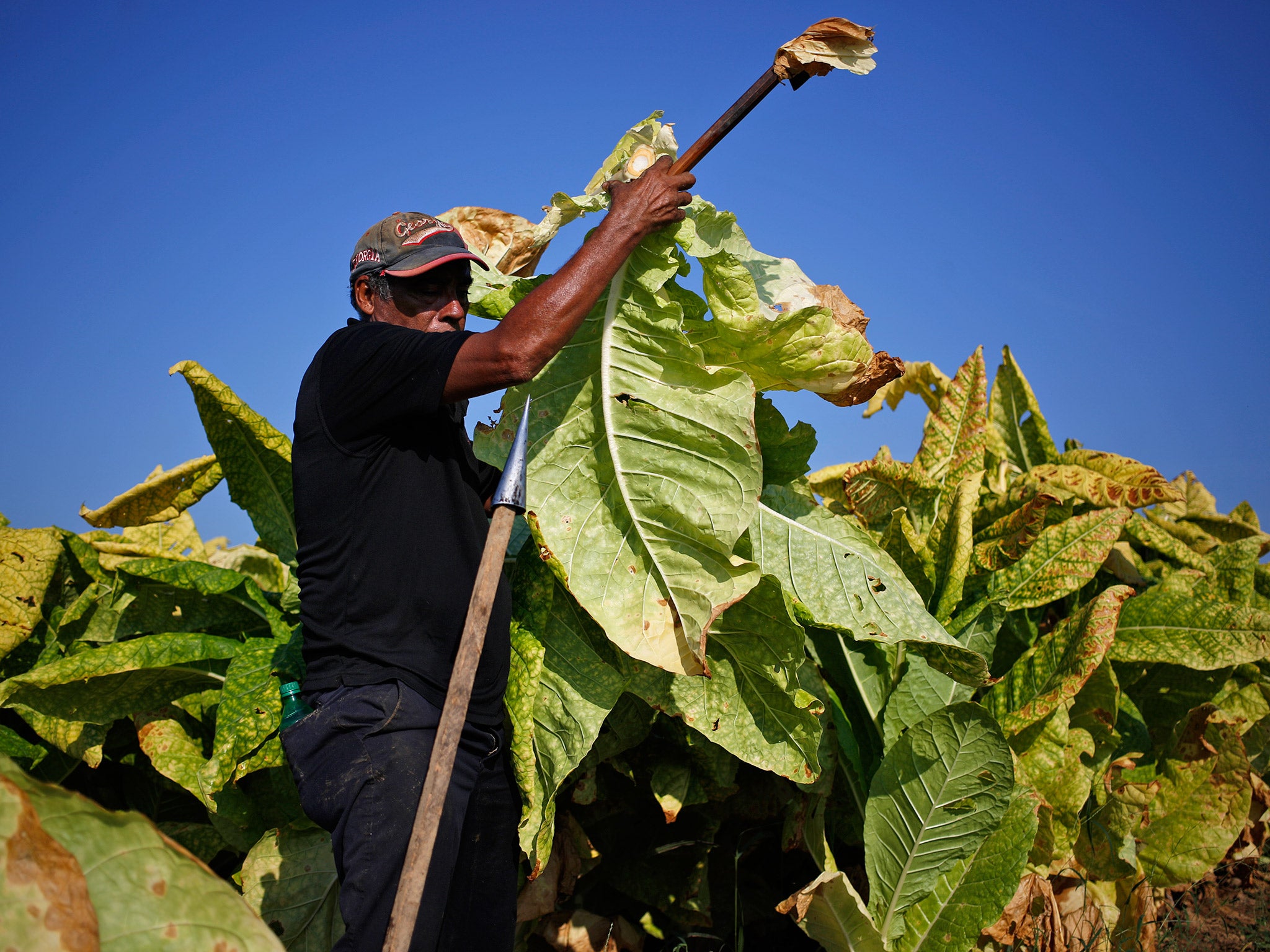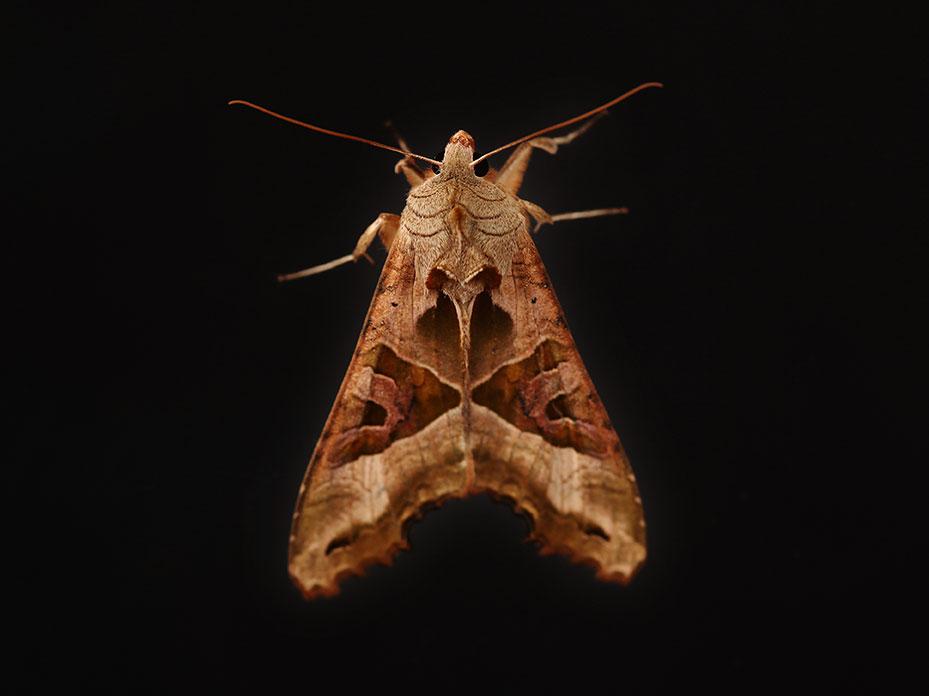Giant moths are invading Britain - attracted by alcohol and tobacco
Cigarettes and alcohol prove effective means of attracting moths during annual count of species

Your support helps us to tell the story
From reproductive rights to climate change to Big Tech, The Independent is on the ground when the story is developing. Whether it's investigating the financials of Elon Musk's pro-Trump PAC or producing our latest documentary, 'The A Word', which shines a light on the American women fighting for reproductive rights, we know how important it is to parse out the facts from the messaging.
At such a critical moment in US history, we need reporters on the ground. Your donation allows us to keep sending journalists to speak to both sides of the story.
The Independent is trusted by Americans across the entire political spectrum. And unlike many other quality news outlets, we choose not to lock Americans out of our reporting and analysis with paywalls. We believe quality journalism should be available to everyone, paid for by those who can afford it.
Your support makes all the difference.Giant moths with huge snouts are invading Britain, in search of alcohol and tobacco.
The convolvulus hawk-moth migrates, by the few hundred, from southern Europe to these shores in the late summer and early autumn – and moth-enthusiast try and attract them with fags and booze.
Hawk-moths, whose wing-span is five inches, feed off the nectar of the deep tubular flowers of tobacco plants, which has prompted moth-fanatics to leave them in their garden at this time of year.
The moth collects the nectar using its long proboscis, a three-inch long elongated nose and snout, as it hovers overhead.
Other enthusiasts use a technique called "wine roping" to attract moths.

It involves hanging out ropes soaked in alcohol such as wine, and "sugaring" which involves painting tree trunks or posts with sugar, syrup and beer.
They are among a number of exotic moths which people may spot during the annual "moth night" counts over three nights this week, which organisers Atropos and Butterfly Conservation hope will help build a better picture of moth migration in the UK. Other methods including shining lights.
Among the species that could be seen are around 40 which have appeared in the UK for the first time in the last 15 years, with some such as the black-spotted chestnut becoming established here.
Other species which were long considered occasional visitors to the UK have also become established, including the tree-lichen beauty, oak rustic, sombre brocade and Clifden nonpareil.

The changes to moth migration could reveal important information about the impacts of climate change on populations of the insects, experts said.
More common hawk-moths in this country, such as the Poplar Hawk-Moth, have a wing-span of 2.5-3.5ins.
Butterfly Conservation's head of recording Richard Fox said: "It has already been an amazing year for moth migration and such activity usually peaks in early autumn.
"With migrants such as the massive convolvulus hawk-moth mixing with beautiful home-grown autumnal species, Moth Night is a great opportunity to discover the hidden wonders of our nocturnal wildlife at a public event or even in your own back garden."
Even if people do not have moth traps or their alcoholic alternatives, they can just go out into the garden to the plants and flowers that attract bees and butterflies during the day and have a look at the moths making up the "pollinator night shift", he said.
"Moth Night" takes place from Thursday to Saturday this week.
Additional reporting by Press Association
Join our commenting forum
Join thought-provoking conversations, follow other Independent readers and see their replies
Comments